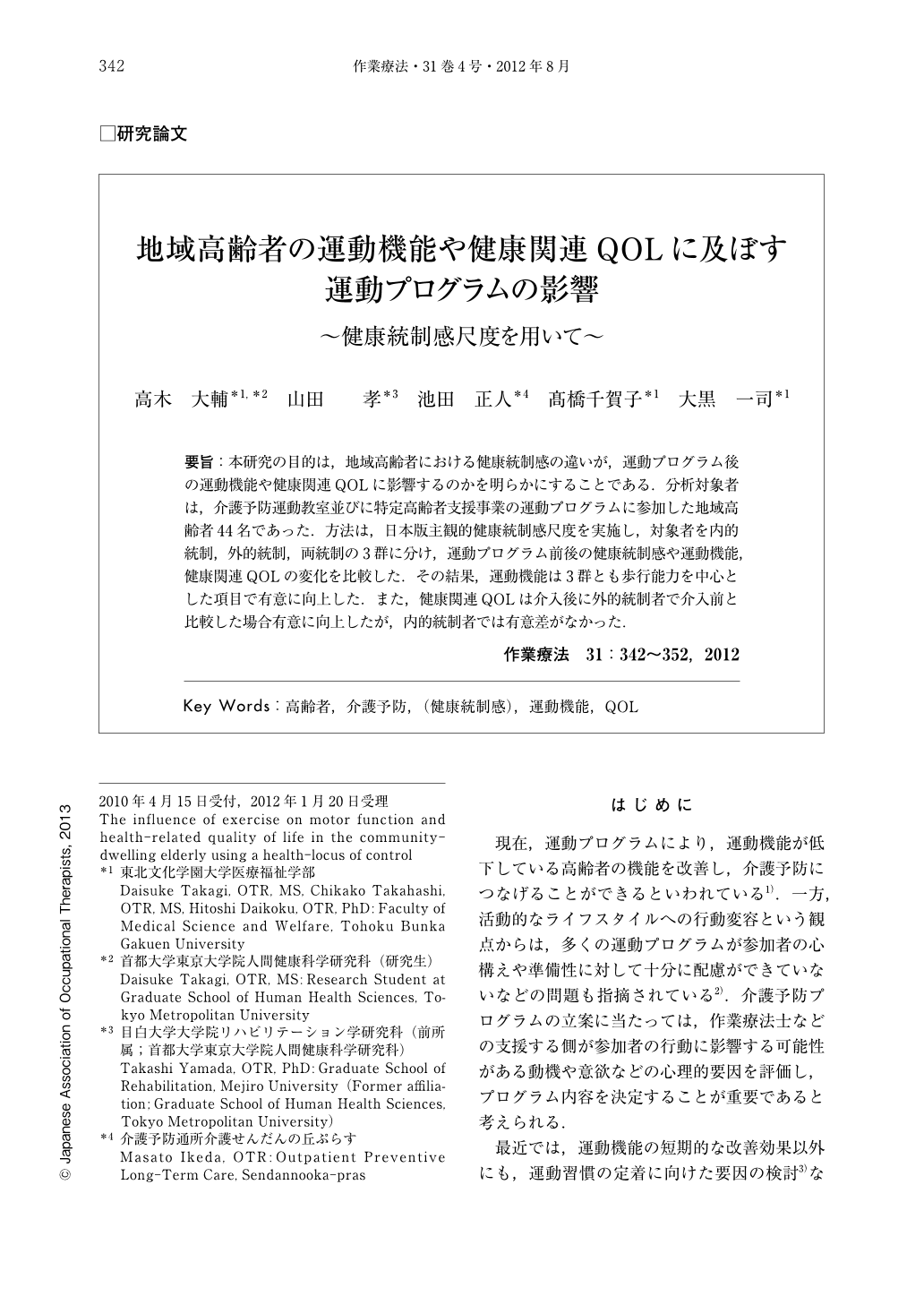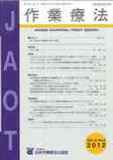Japanese
English
- 販売していません
- Abstract 文献概要
- 1ページ目 Look Inside
- 参考文献 Reference
- サイト内被引用 Cited by
要旨:本研究の目的は,地域高齢者における健康統制感の違いが,運動プログラム後の運動機能や健康関連QOLに影響するのかを明らかにすることである.分析対象者は,介護予防運動教室並びに特定高齢者支援事業の運動プログラムに参加した地域高齢者44名であった.方法は,日本版主観的健康統制感尺度を実施し,対象者を内的統制,外的統制,両統制の3群に分け,運動プログラム前後の健康統制感や運動機能,健康関連QOLの変化を比較した.その結果,運動機能は3群とも歩行能力を中心とした項目で有意に向上した.また,健康関連QOLは介入後に外的統制者で介入前と比較した場合有意に向上したが,内的統制者では有意差がなかった.
Purpose: To find out how the motor function and health-related quality of life (HRQOL) in the elderly living in the community are influenced by a difference of health-locus of control (HLC) after exercise. Subjects: 44 elderly people participated in the exercise program for the prevention of long-term care or a specified supportive program. Method: Japanese version of the health locus of control was administered, and a change of HLC, motor function and HRQOL were compared in the pre and post exercise programs. We divided the subjects into three groups; internal HLC, external HLC and those influenced by both. Results: The motor function in all three groups significantly improved in the area of walking ability. Also, the HRQOL of those in the external HLC ultimately significantly improved, when compared to the onset. However, the change in the HRQOL of those in the internal HLC was not significant.

Copyright © 2012, Japanese Association of Occupational Therapists. All rights reserved.


